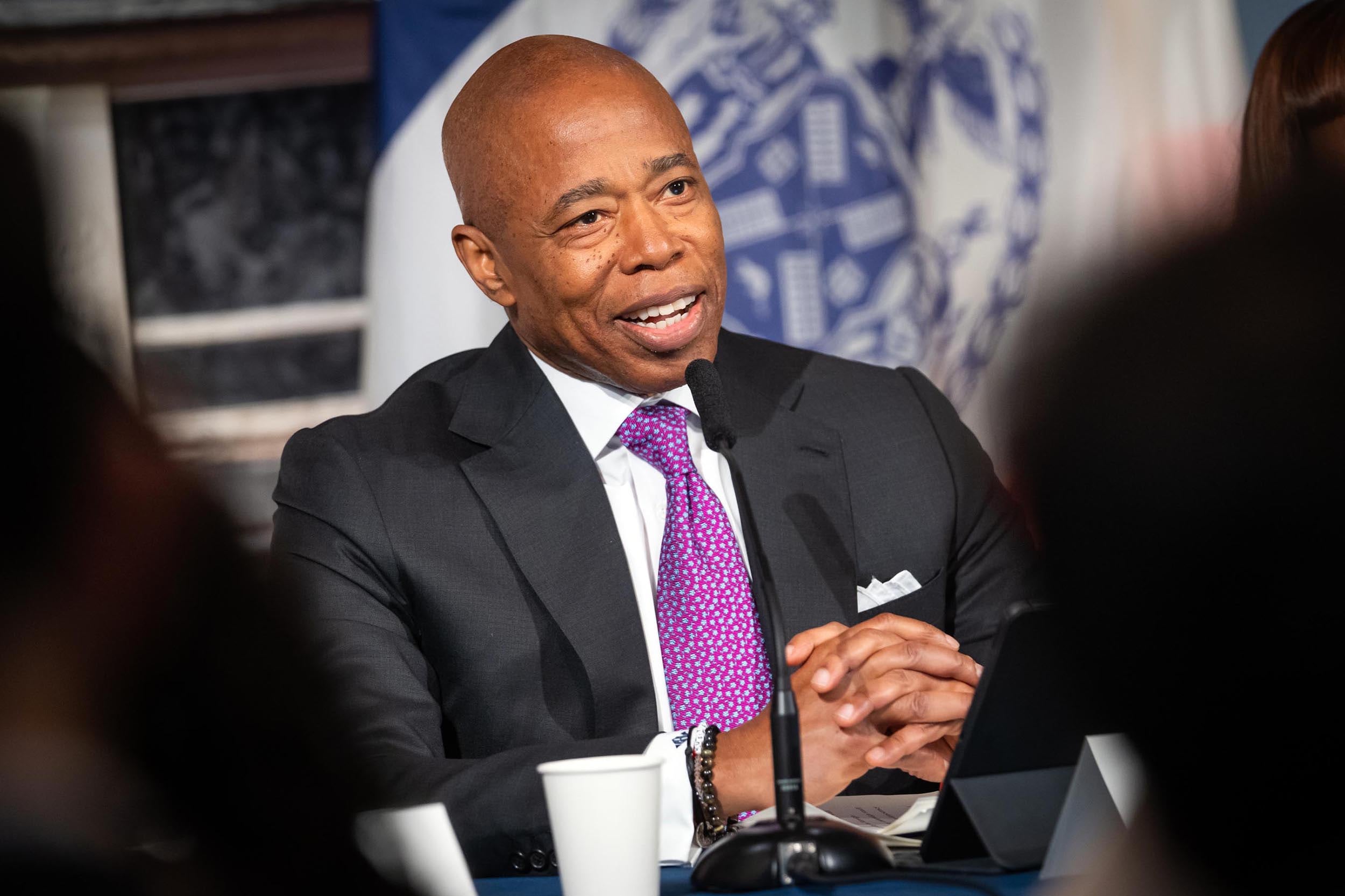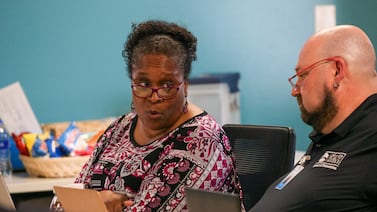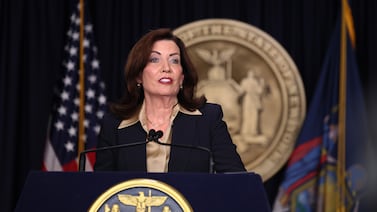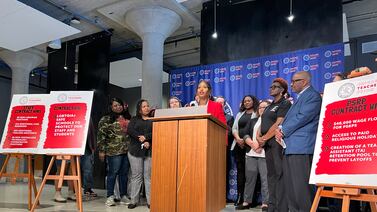Sign up for Chalkbeat New York’s free daily newsletter to keep up with NYC’s public schools.
Mayor Eric Adams will need to return to Albany next year to retain control of New York City schools, but in the meantime, residents across the five boroughs have a chance to voice their opinions on whether mayoral control has been effective.
As part of a comprehensive review of New York City’s school governance structure, the state plans to hold five public hearings in December and January, offering families, educators, school staff, administrators, and others an opportunity to weigh in on the city’s mayoral control system.
The review comes as part of a deal state lawmakers struck in 2022 — extending Adams’ control of the city’s schools for two years, while giving Albany time to assess how effective the long-standing system has been — though efforts to reconsider the system date back years. It seeks to understand the overall effectiveness of the system, including study of school governance models and best practices used by other school districts and input from a broad range of community members.
The current mayoral control deal will expire on June 30, meaning Adams will need to renegotiate in the next legislative session if he hopes to retain control.
Mayoral control — which has been regularly extended over the past two decades — has relied on the mayor’s power to choose the schools chancellor and appoint a majority of people to the city’s Panel on Educational Policy, a city board of mostly appointed members that votes on major policy proposals and contracts. Though Adams retained both in the 2022 deal, other changes lessened the level of control the mayor holds over the city’s school system.
In one significant move, for example, PEP members could no longer be removed for voting against their appointer’s wishes, making it harder to remove a panelist for opposing proposals from City Hall. The board also expanded from 15 to 23 members.
Adams has criticized state lawmakers for approving only a two-year extension.
“We should not have to fight for mayoral control every two years,” he said in a June interview on Synergy TV Fusion. “All mayors from Bloomberg to de Blasio, they had it for four years. We shouldn’t wait until we have a mayor of color, then all of a sudden the rules have changed.”
The public hearings will take place in each of the five boroughs, and members of the public can participate by speaking at the hearing or submitting a written testimony. All hearings will take place in the evening and are accessible by public transportation, state officials said.
The state hasn’t yet released details on how to submit testimony or posted specific times for the hearings.
Though the 2022 deal initially called for the review’s findings to be released to lawmakers and the governor by Dec. 1, its completion was delayed due to funding concerns, according to a state Education Department spokesperson. The state’s Education Department is currently working with the legislature to secure additional funding, and plans to submit its final report by March 31, officials said.
In Chicago, where mayoral control of schools was established in 1995, the city will transition to a fully elected school board by 2027.
Here’s where and when the public hearings will be held in each borough:
The Bronx:
Dec. 5 at DeWitt Clinton High School at 100 W. Mosholu Parkway S.
Queens:
Dec. 18 at Thomas A. Edison Career and Technical High School at 165-65 84th Ave.
Brooklyn:
Jan. 11 at Boys and Girls High School at 1700 Fulton St.
Manhattan:
Jan. 18 at Martin Luther King Jr. Educational Complex at 122 Amsterdam Ave.
Staten Island:
Jan. 29 at New Dorp High School at 465 New Dorp Ln.
Julian Shen-Berro is a reporter covering New York City. Contact him at jshen-berro@chalkbeat.org.







